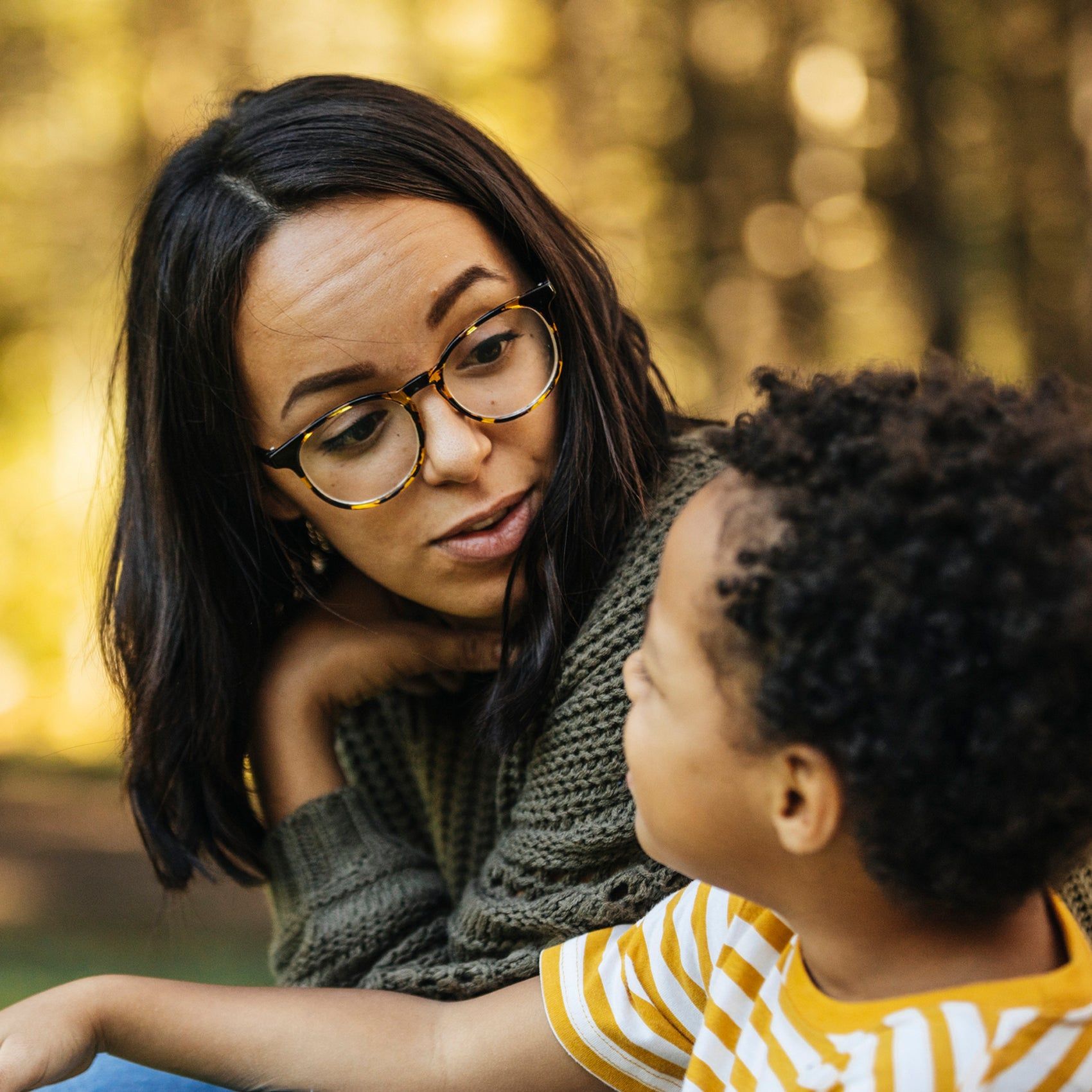
How to Talk to Kids About the News
Experts weigh in on how to help your children process hard things and heavy times–even if you're still processing current events yourself.
- Written By
- Maisonette Editors
Even as we struggle to process overwhelming current events; it’s important to remember that children are doing the same. Our job as parents is to help them make sense of the world around them, so I spoke with three experts about how best to approach discussing the news with children.
Here are some key takeaways from those conversations and a few things to think about when navigating difficult or scary news with your children.
Manage Your Own Feelings First
Every expert I spoke to reiterated how in tune children are with their parents’ feelings. Of course, it’s okay to be upset in front of your child, but it’s important to acknowledge and explain those feelings. Clinical psychologist Dr. Becky Kennedy suggests something like, “You might have noticed that I’ve been feeling a bit, well... uneasy. You are right to notice that. Two things are true: Mommy feels sad and Mommy is strong and able to take care of you.”
Christia Spears Brown, a developmental psychologist at the University of Kentucky, suggests talking through how you are processing something yourself. “You might say, ‘Wow, this feels really scary, but I can see it is going to be okay,’ or ‘I’m feeling less anxious now.’ Doing your own work to calm down and letting them see that is really good scaffolding for kids.”
You don’t have to share everything you know with children, as the conversation gives them a safe space to ask questions and process their concerns. You can be straightforward without being more forthcoming than necessary.
Commit to the Conversation
While it’s natural to want to protect your children from difficult things—and the recommendation to wait until kids are around seven to expose them to much news—all three experts I talked to agreed it’s best to face events that they may learn about from someone else head-on. For example, Dr. Becky Kennedy offered a helpful five-point strategy for talking to kids about hard truths on her Instagram account, “What’s scariest to a child is noticing changes in his environment and not having an adult talk to him about it.”
Dr. Brown said it’s a conversation that parents of all ages should have, even if it feels too soon. “It’s good to help kids understand things before they are really able. Often kids are already thinking about these things and trying to come up with their own explanations, so it’s important for parents to step in and help.”
“For the youngest kids, you have to be the mediator between the news and how they interpret it,” said Diane Jones Lowrey, Senior Director, Community Partnerships at Common Sense Media, which offers resources designed to help parents do just that. She suggested age-based tips for explaining the news to our kids and5 Essential Media Literacy Questions for Kids.”
Follow Your Child’s Lead
Parents know their children best, and conversations will vary based on age, but it is always good to start by asking questions about what they have seen and how they feel.
It’s important to realize that very young children understand the world in concrete terms and may have a hard time understanding that what is happening is not right outside their door, so your priority is to make them feel safe. “The biggest distinction to make (based on age) is between concrete ideas and abstract ideas,” said Dr. Brown. Younger children will not understand concepts like democracy, for example, but will require a straightforward explanation.
For older children and teens, said Lowrey, “You can ask more probing, critical questions about what they saw and if they can compare it to anything else in history because that will allow them to put this incident into context.” You might also ask how their friends feel about it because that is a large part of how they form opinions.
Find the Teachable Moments
All the experts encouraged parents to use current events to inform their children about the government and their role as citizens and members of a community. Dr. Brown suggested focusing on how everyone has a voice and learning to use our voice in the right ways.
Lowrey makes the point, for example, after the events of January 6th (at the Capitol riot), kids learned that “despite the protest and the violence, the lawmakers came back and conducted the business they were there to do, and they finished their task because they understood the importance of it.”
Kids may want to know how they can help, so it can be good to have an idea in mind. Creating a card or sign can be a tangible way for them to help or raise money for helpers. A bake sale or lemonade stand can help organizations that help feed families in times of need or provide resources for refugees.
Reassure Them They Are Safe
Conversations like this may not always go as scripted, but the most important thing is for your children to know that they are safe and you are safe. Lowrey said, “It goes back to reassuring the kids that you are there for them and they are cared for, so they understand that even if this is a chaotic situation, they have someone that has their back, and that’s you.”
Be ready for more conversations as some kids may need time to process what they hear and let them know they can always come to you if they are worried or have questions.